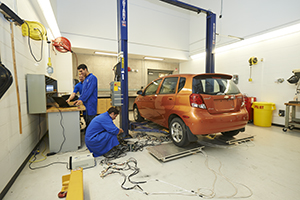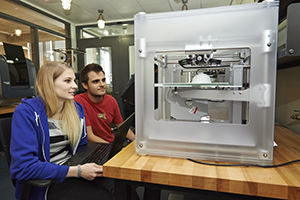Undergraduate Programs
Designed to meet industry needs, our programs provide a solid grounding in basic sciences, mathematics and computing, along with knowledge in various engineering application fields. We offer programs through four departments: the Department of Automotive and Mechatronics Engineering, the Department of Electrical, Computer and Software Engineering, the Department of Energy and Nuclear Engineering, and the Department of Mechanical and Manufacturing Engineering.
Click on the links below to learn more about a specific program.
Automotive Engineering
The only accredited program of its kind in Canada, our program prepares engineers to meet the need for advancements in the automotive sector by accelerating research and the development of alternative technologies, such as electric and fuel-cell driven vehicles.

Electrical Engineering
The Electrical Engineering program focuses on the design and development of electrical and computer technologies, and their component parts. The integration of electrical components into complex systems is also studied. You also have the option to specialize in Smart Grid.
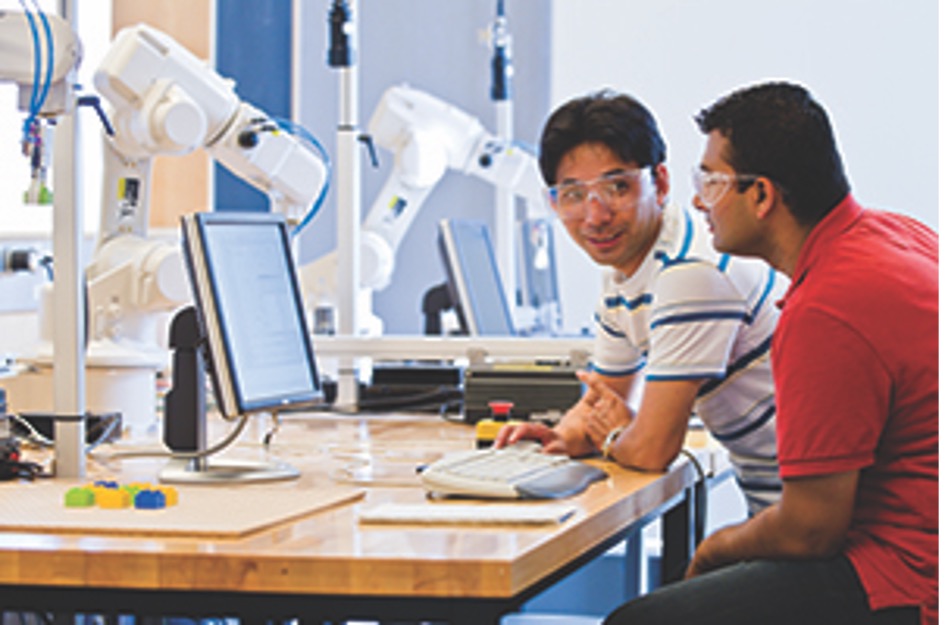
Energy Engineering
Energy Engineering is an interdisciplinary program that enables graduates to be part of the low-carbon energy transition and encompasses a variety of engineering fields including electrical, mechanical and nuclear.
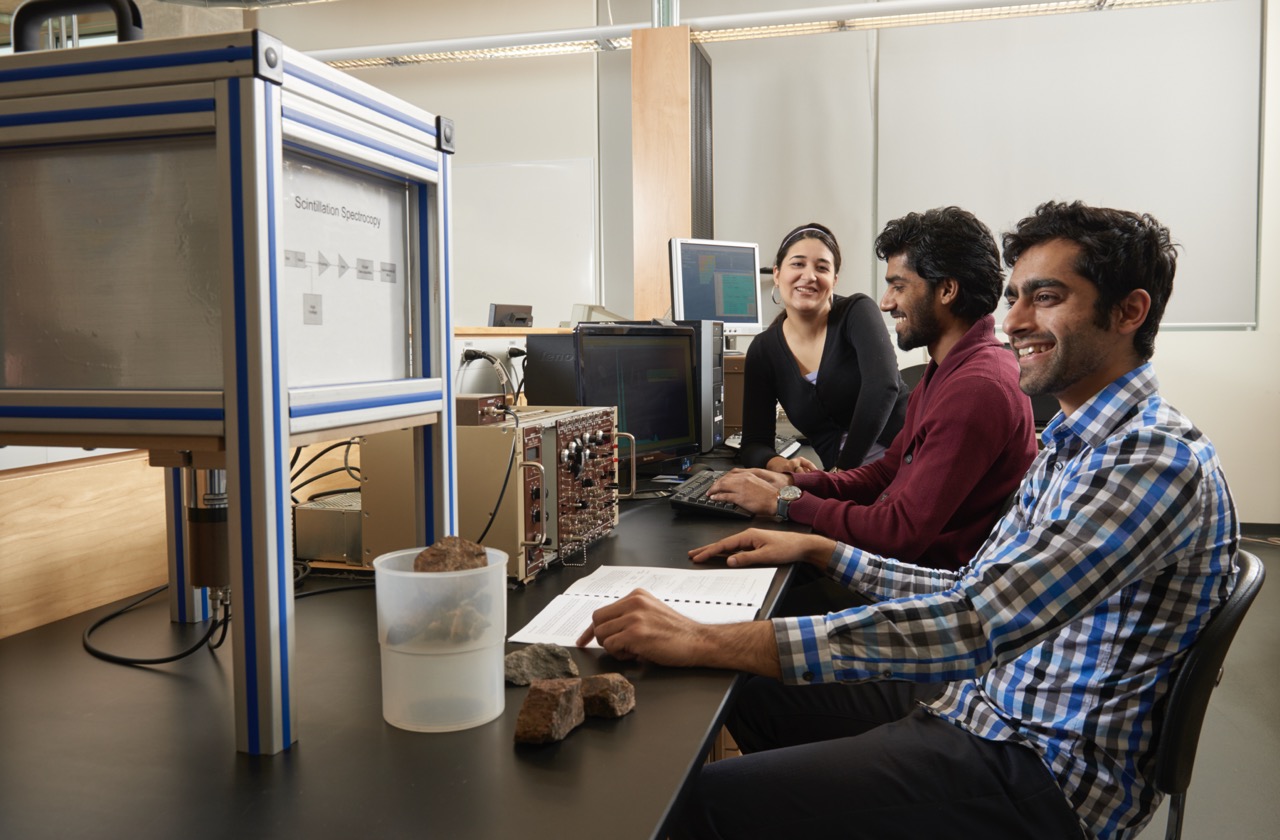
Health Physics and Radiation Science
The Health Physics and Radiation Science program provides an advanced science curriculum that strongly emphasizes the safety aspects of ionizing radiations.
 Industrial Engineering
Industrial Engineering
Industrial engineering is an engineering discipline that integrates several branches of engineering education with the objective of optimizing and improving complex engineering processes, systems, or organizations.
Manufacturing Engineering
The only accredited program of its kind in Canada, our program is all about the design and improvement of high‑tech systems for the production and manufacturing of products. This includes the development and application of advanced technologies such as robotics, automation, new materials and intelligent controls.

Mechanical Engineering
Mechanical engineering overlaps with other engineering disciplines – electrical, chemical, civil, computer and software, to name a few. It is interdisciplinary and one of the broadest engineering disciplines.
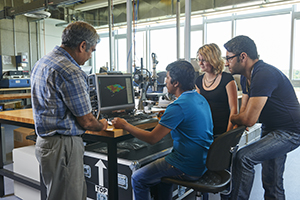
Mechatronics Engineering
The Mechatronics Engineering program is an interdisciplinary engineering field. It integrates mechanical and electrical systems with real-time control, combining hardware with software to produce new devices such as consumer products, medical devices, high-tech automobile systems and robots.

Nuclear Engineering
The Nuclear Engineering program is designed to meet a worldwide need for graduates in the field of nuclear engineering. The program's primary focus is nuclear power plant engineering, but the curriculum is sufficiently broad-based and will prepare students for the many applications of nuclear technology and energy-related fields.
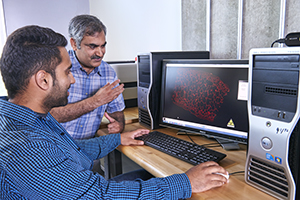
Software Engineering
The Software Engineering program focuses on the analysis, design, development and testing of reliable and secure software systems, as well as the integration of software into complex systems and the timely and cost-effective delivery of software systems that meet changing requirements.
